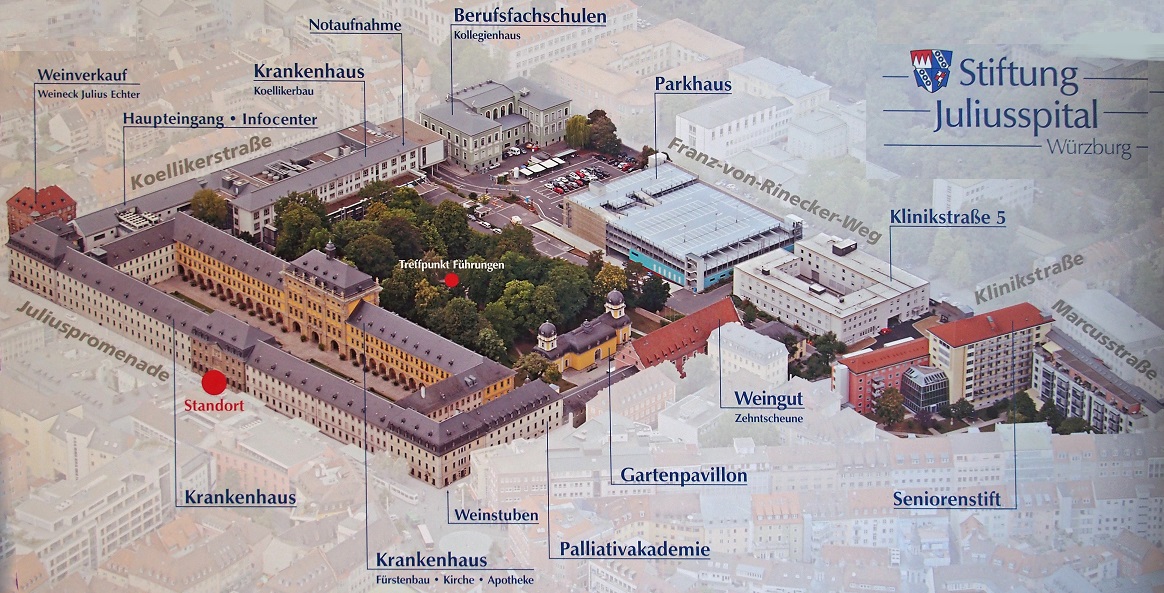The winery is located in the city of Würzburg in the German wine-growing region of Franconia. It was founded in 1576 by Prince-Bishop Julius Echter von Mespelbrunn (1545-1617), modelled on the Christian Hospice Hospices de Beaune in Burgundy, France. He acquired the "Judengarten" outside the historic town centre for this purpose. This makes the estate one of the oldest wineries in Germany and Europe. The prince-bishop transferred sufficient income and extensive property to his foundation to cover its tasks, which included vineyards, including the world-famous Würzburger Stein site, as well as extensive agricultural and forestry properties.

Welfare facilities
To this day, a retirement home, a hospice, two palliative care centres, a nursing school and other welfare facilities are maintained. The foundation's task of providing healthcare was taken over by Klinikum Würzburg Mitte at the beginning of 2017. Built in 1699 by the Franconian master builder of Italian descent Antonio Petrini (1631-1701), the 250 metre long cellar corridor is the longest wooden barrel cellar in Germany and is lined with 220 oak barrels. There is an in-house wine bar "Weineck Julius Echter" opposite the main entrance to the Juliusspital. Since November 2022, Joachim Brand, who previously worked at the Fürst zu Hohenlohe-Oehringen winery, has been the operations manager.
Viticulture
The vineyards cover around 180 hectares and extend over the whole of Franconia with a linear distance of around 100 km in many municipalities or individual sites. These include Bürgstadt with Mainhölle; Dettelbach with Berg-Rondell; Escherndorf with Lump; Iphofen with Domherr and Julius-Echter-Berg; Randersacker with Pfülben and Teufelskeller; Rödelsee with Küchenmeister; Thüngersheim with Johannisberg; Volkach with Karthäuser; and Würzburg with Abtsleite, Festungsblick im Monopol, Innere Leiste, Pfaffenberg and Stein. The Vogelsburg monastery was run by Augustinian nuns and handed over to the Juliusspital Foundation along with the vineyards in 2011. The white wine varieties Silvaner, Riesling, Müller-Thurgau,Pinot Blanc and Pinot Gris, as well as red wine varieties, mainly Pinot Noir and Domina, are cultivated here. After fermentation, the wines are stored for a long time on the fine lees. Maturation takes place in a combination of stainless steel tanks and partly in very old large oak barrels. Organic wines are also produced from the three hectares of Vogelsburger Pforte. The winery is a member of the VDP (Verband Deutscher Prädikatsweingüter).
Image: by Hajotthu, CC BY-SA 3.0, Link
Voices of our members

For me, Lexicon from wein.plus is the most comprehensive and best source of information about wine currently available.
Egon Mark
Diplom-Sommelier, Weinakademiker und Weinberater, Volders (Österreich)